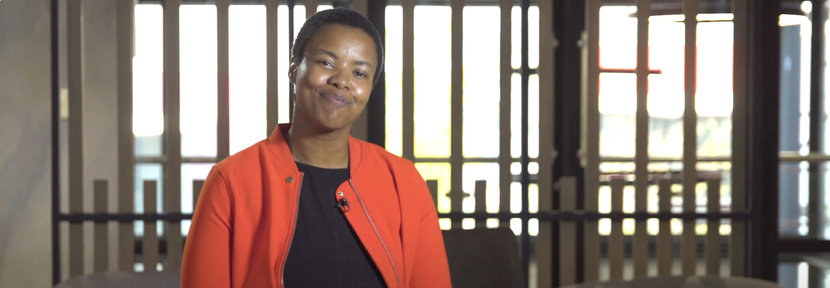Location / Language


Cepheid
Video
Tags
- Region - Africa
- TB
- Covid-19
Related Posts
2m Watch
September, 04 2024
2m Watch
September, 05 2024
5m Read
September, 05 2024
3m Watch
September, 04 2024
RESPIRATORY HEALTH
Video
COVID-19 & TB Testing in South Africa: A Story from Doctor & Patient
Dr. Sifumba is a medical doctor, a survivor of both COVID-19 and multidrug-resistant tuberculosis (MDR-TB), and a health activist living in Johannesburg, South Africa. She shares her story and her dedication to improving access to molecular diagnostics for patients and health workers across the globe.
Zolelwa Sifumba, M.D.: “My name is Dr. Zolelwa Sifumba, and I am a medical doctor, I am also an occupational survivor of multidrug-resistant tuberculosis, as well as COVID-19. Both illnesses that I contracted on the front line, and I am a global health advocate and activist.
My own journey of TB diagnosis and going through treatment started off with me in denial because I didn't see myself as someone who would be at risk of contracting tuberculosis. I was just so broken that I was giving of myself and because of that, I contracted this illness.
What would have helped along my own journey with tuberculosis was if the diagnostic tools available worked a lot faster. I got tested and about two weeks later, the results were out. What happens between the test and the results coming out is that people go home and if they are infectious, they end up infecting people at home; they end up infecting people on public transport.
South Africa would definitely benefit from having increased access to diagnostics. And when I say increased access, I mean not just access to the diagnostics in your bigger referral centers. It's very important that we provide these diagnostics, you know, within areas where they are needed. The GeneXpert® machine essentially revolutionized the way that we diagnose people.
People could come essentially from wherever they are and get this test, and this test would be ready within a matter of hours and within those matter of hours, they would know if they were positive for TB or not, and whether or not it was rifampicin or isoniazid-resistant, which is very important because it basically sets the tone for the health center and for the patient as to how much treatment they're going to be on and for how long.
The goal of ending TB in 2035 is possible, but we need diagnostics that are fast and can give answers within a certain amount of time so that people can get treated within a certain amount of time. We just all need to use our voices in the same way that I have all these years, and and continue to."
Read Next
MORE






